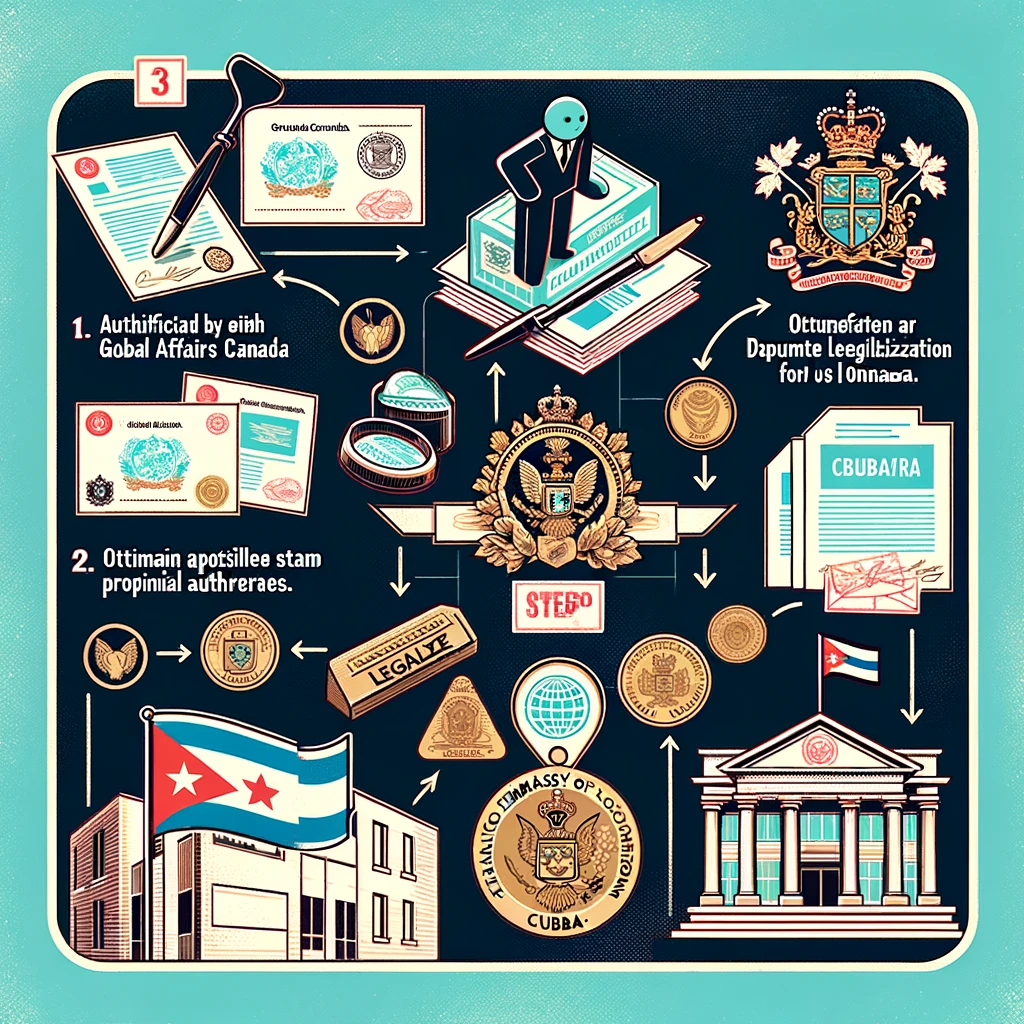Simplifying Document Legalization for Use in Cuba
In a significant development, Canada has joined the Hague Apostille Convention, streamlining the process of legalizing official Canadian documents for international use. This article explores the implications of this advancement, particularly for Canadians needing to use documents in Cuba. We will delve into the intricacies of the Authentication and Legalization process, the types of documents typically requiring legalization, and why Global Document Solutions, with its vast experience, is your ideal partner in navigating these procedures.
Understanding the Authentication and Legalization Process
The Hague Apostille Convention, established to simplify the legalization of documents to verify their authenticity, is a significant leap forward for Canadians working with foreign documentation. However, while Canada's accession to the Convention simplifies the process, it doesn't eliminate the need for traditional steps entirely of authentication and legalization when dealing with Cuba.
Step 1: Authentication
First, your Canadian document must be authenticated. This can be done through Global Affairs Canada or a provincial competent authority like those in Alberta, British Columbia, Ontario, Quebec, or Saskatchewan. Authentication verifies the signature and the capacity of the official who has signed the document.
Step 2: Legalization at the Embassy of Cuba
Since Cuba is not a member of the Hague Apostille Convention, an additional step is required. The authenticated document must be legalized at the Embassy of Cuba in Ottawa. This step ensures that the document adheres to the legal requirements of Cuba.
Why You May Need Authentication for Cuba
The need for authentication and legalization arises in various scenarios, particularly when engaging in legal or governmental procedures in a foreign country. For example:
- Getting Married in Cuba: If a Canadian wishes to marry in Cuba, they must provide authenticated documents like birth certificates, affidavits of single status, and divorce certificates if applicable.
- Business Transactions: Establishing a business or engaging in trade with Cuban entities often requires authenticated corporate documents.
- Studying in Cuba: Academic credentials like diplomas and transcripts may need authentication for educational pursuits in Cuba.
Global Document Solutions: Your Trusted Partner
Navigating international documentation requirements can be complex and time-consuming. This is where Global Document Solutions stands out, offering unparalleled expertise and support. Here's why we are your best choice:
- Three Decades of Experience: Our extensive experience in document legalization ensures a smooth, error-free process.
- Expertise in Canadian and Cuban Regulations: We understand the nuances of both Canadian and Cuban legal frameworks.
- Personalized Service: We offer tailored solutions catering to individual needs, whether for personal or business purposes.
- Efficient and Reliable: Our proven track record of efficiency and reliability makes us a trusted partner in managing sensitive documents.
Conclusion Trust The Experts @ Global Document Solutions
Canada's participation in the Hague Apostille Convention marks a step forward in international document legalization. However, the additional requirement of legalization for use in Cuba underscores the need for expert guidance. Global Document Solutions, with its comprehensive experience and specialized knowledge, is ideally positioned to assist Canadians in ensuring their documents meet all necessary standards for use in Cuba.


